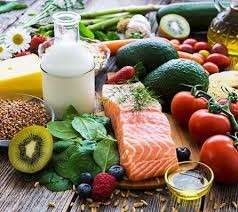- Are you suffering from digestive issues after having a gallbladder removal surgery?
- Are you facing a watery stool?
Dr Harsh Sheth, one of the most well known bariatric surgeon in Mumbai, also offers the most effective gall bladder surgery in Mumbai. Many people in Mumbai suffer from digestive issues after having gallbladder removal surgery.
If you are suffering from any complications after your gallbladder removal surgery, you should visit our doctor.
Well, after gallbladder removal surgery (cholecystectomy), some people often have loose, watery stools. In most cases, diarrhoea does not last more than a few weeks to a few months. There is no specific gallbladder removal diet that you need to follow while solving this problem, but you might consider a few things.
First, it helps to understand why you have diarrhoea. Diarrhoea after gallbladder removal appears to be related to the release of bile directly into the intestines. Generally, the gallbladder accumulates and concentrates bile. When the gallbladder is removed, the bile is less concentrated and continually drains into the intestines, where it can have a laxative effect.
The amount of fat you eat at the same time also plays a role. Smaller amounts of fat are more comfortable to digest, while largeramounts are not digested and can cause gas, bloating, and diarrhoea.
The following tips can help you to stay healthy after your gallbladder has been removed:
- What you can eat immediately after surgery depends on your situation. Sometimes doctors recommend liquids and soft foods. In other cases, with doctors, you can eat what you want. For the most part, you will find that soft and mushy foods are the easiest to eat. These include bananas, white rice, boiled potatoes, plain pasta,
- Dry toast and crackers. Gradually, you can move up your diet and add tastier foods. Eat Low in Fat food. Avoid high-fat foods, fried foods, greasy foods, and fatty sauces for at least a week after surgery.
- Choose fat-free or low-fat foods. Low-fat foods contain no more than 3 grams of fat per serving. Check the labels and follow the indicated serving size. Milk and dairy products are essential sources of calcium, vitamin D, and protein. However, this food group can cause problems after gallbladder surgery. To avoid indigestion, choose low-fat or fat-free.
- Dairy products, such as skim milk and low-fat dairy products. Fat cheese. Avoid whole milk dairy products, as the fat content can make diarrhoea worse. On the other hand, low-fat yoghurt with live active bacterial cultures can aid digestion.
- Increase the fibre in your diet. This can help normalize bowel movements. Add soluble fibre to your diet like oatmeal and barley. However, be sure to slowly increase the amount of fibre over several weeks, for example, as too much fibre can initially worsen gas and cramps.
- If you have diarrhoea after having your gallbladder removed, you need to think about hydration. Diarrhoea can rid your body of fluids, vitamins, and minerals. Stay hydrated by drinking plenty of water or drinks that are fortified with vitamins and minerals. Sports drinks that contain sodium, chloride, and potassium are good choices when you have diarrhoea. Avoid alcohol and caffeinated beverages like coffee, tea, and soda.
- Eat smaller, and More frequent meals. This can ensure a better mix with the available bile. A healthy meal should contain small amounts of lean proteins, such as poultry, fish, or fat-free dairy products, and vegetables, fruits, and whole grains.
- Most people return to a varied and regular diet once they have fully recovered. However, keep in mind that it may take several days for your appetite to return to normal and several weeks for your digestion to normalize. If your digestive problems don’t go away, call your doctor. If your digestive issues don’t go away, it could be a sign of a complication, or you may need to take medicine to control your symptoms.
Also, try to limit foods that tend to make diarrhoea worse, including:
- Caffeine.
- Alcohol
- Dairy products.
- Sugar rich food.
- Spicy and oily food.
Talk to your doctor if diarrhoea does not go away gradually or becomes severe, or if you lose weight and become weak. Your doctor may recommend medications such as loperamide (Imodium AD), which slows down your bowel movement, or medicines that reduce the laxative effects of bile, such as cholestyramine (Prevalite).
Your doctor may also recommend that you take a multivitamin supplement to help correct fat-soluble vitamin malabsorption.

